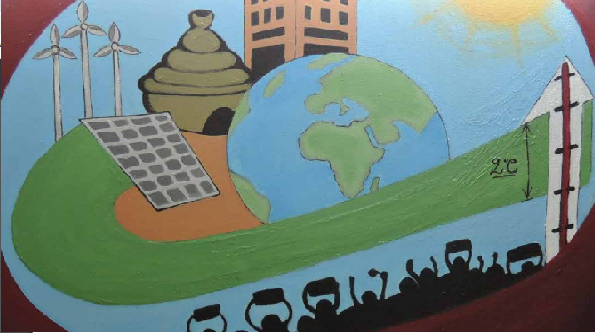Why consider local solutions within the energy transition and the fight against climate change?
Local climate solutions at COP 21- Paris
Gunnar Boye Olesen, coordinator, INFORSE-Europe
Raymond M. Myles, Coordinator, INFORSE-South Asia
World leaders meeting at COP have a unique opportunity to meaningfully commit to limiting warming to 1.5 – 2’C. The real changes, however, will not happen in such conferences, but around the world, such as reducing our greenhouse gas emissions.
We must find a way to reduce our emissions to a point that can limit climate change to sustainable, survivable levels. In doing so, we also free ourselves from the fossil fuel system, through which we deplete limited underground resources and pollute the air we breathe while destroying the natural systems that maintain temperatures and support life on earth.
Fortunately, when combined with energy conservation, renewable energy can meet our needs in a clean and affordable way.
We have shown how this can be carried out with a series of examples from the INFORSE network, and we are not the only ones pointing the way.
NGOs in Africa and South Asia are promoting key elements of low-carbon development, choosing renewable and efficient energies that are best suited for the development of their countries and regions. We also show how local eco-village developments in South Asia can be used, combining a range of solutions to provide both energy and income opportunities to reduce poverty.
Adding to these development-driven proposals for Africa and South Asia are rapid transitions to renewable energy from high-emitting countries in the north. We put forward proposals precisely to that end for the UK, Denmark and other countries, proposals that could turn these high-carbon economies into low- or zero-emission economies.
While the decisions made at COP21 in Paris will affect action frameworks with financing, political expectations, etc., the real changes occurred and will occur in the territories. To make the differences necessary to maintain a liveable climate, reduce poverty, etc., the Paris agreement must be followed by ambitious agreements and effective national implementation of the low carbon policy, as part of an agenda of renewable energy.
Local actions following national policies must be even more ambitious than national policies. They must lead the way. Therein lies the hope that we can stabilize the climate and achieve sustainable energy for all within our lifetime.
Source and more information:
https://www.inforse.org/doc/SEN77.pdf


